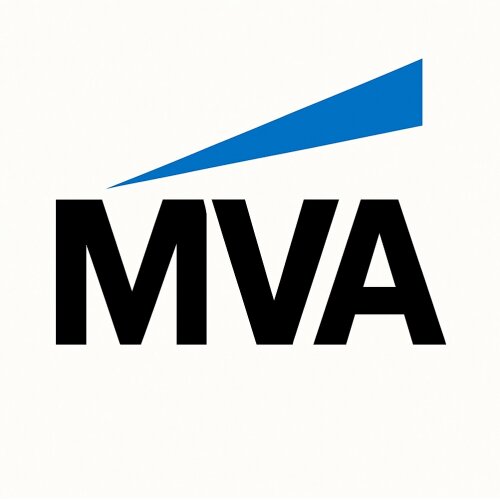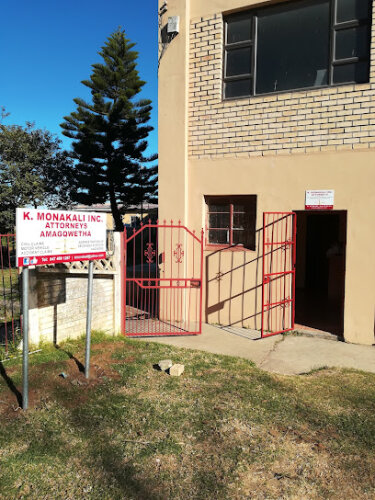Best Child Visitation Lawyers in East London
Share your needs with us, get contacted by law firms.
Free. Takes 2 min.
Free Guide to Hiring a Family Lawyer
List of the best lawyers in East London, South Africa
South Africa Child Visitation Legal Questions answered by Lawyers
Browse our 1 legal question about Child Visitation in South Africa and read the lawyer answers, or ask your own questions for free.
- Can I have at least some time with my child?
- My girlfriend and I ended things up having an argument and her family got into our issue and told me I had paid anything for my child and they started fighting me and telling me I don't have a child there. When we tried to contact them and tell them... Read more →
-
Lawyer answer by RP Attorneys
If you are the biological parent of a child (but not limited to only a biological parent), the Children’s Act makes provision for child visitation and rights to care for a child. Maintenance and visitation are completely separate in SA....
Read full answer
About Child Visitation Law in East London, South Africa
Child visitation law, often referred to as “contact rights,” governs how and when a parent or guardian who does not have primary care of a child can spend time with them. In East London, South Africa, these laws aim to ensure that a child maintains a relationship with both parents or significant caregivers, provided that it is in the child’s best interests. The courts in East London, as in the rest of South Africa, focus on promoting the welfare and emotional stability of the child when granting and regulating visitation rights.
Why You May Need a Lawyer
Seeking legal assistance for child visitation matters can make a significant difference in ensuring a fair, clear, and enforceable arrangement. Common situations where a lawyer may be necessary include:
- Disagreements or conflicts with an ex-partner about visitation schedules.
- Concerns about the child’s safety during visits.
- Wanting to establish, modify or enforce a visitation agreement.
- In situations where one parent is relocating.
- When visitation orders are being violated or ignored.
- Complex cases involving extended families or guardians.
- Cross-border (international) visitation and abduction concerns.
A lawyer helps interpret the law, represent your interests in court, mediate disputes, and ensure that any agreement aligns with local legislation and, most importantly, the child’s best interests.
Local Laws Overview
Child visitation in East London is governed by the Children’s Act 38 of 2005, which applies throughout South Africa. Key aspects include:
- Best Interests of the Child: This overarching principle guides all decisions, ensuring that arrangements support the child’s welfare, safety, and development.
- Parental Responsibilities and Rights: Both parents retain responsibilities and rights unless a court orders otherwise; these include the right to contact and care for the child.
- Mediation Encouraged: Courts often require parties to attempt mediation before litigation, especially where conflict exists.
- Types of Contact: Contact can be direct (physical visits) or indirect (calls, video chats, letters).
- Changing or Enforcing Arrangements: Orders can be varied if circumstances change or if arrangements no longer serve the child’s best interests. Contempt of court proceedings can be initiated if visitation orders are ignored.
- Role of Family Advocate: The Family Advocate’s Office evaluates cases and makes recommendations to the court regarding contact and care.
East London’s courts strictly follow these guidelines but will tailor arrangements to suit particular family circumstances or the needs of the child.
Frequently Asked Questions
What should I do if my ex-partner denies me access to my child?
If a formal visitation agreement or court order exists, you can approach the court for enforcement. Legal advice can help you take the appropriate steps, including mediation or formal legal proceedings if necessary.
Can a visitation agreement be changed once it is in place?
Yes. If circumstances change or if the arrangement no longer serves the best interests of the child, either parent or guardian may apply to the court to vary the visitation agreement.
What options exist if my child feels uncomfortable or unsafe during visits?
The child’s best interests are paramount. If there are concerns about safety or well-being, report these to your lawyer and the court. The Family Advocate or a social worker may become involved to investigate.
Is supervised visitation possible in East London?
Yes. If there are risks to the child’s welfare, the court may order supervised visits, where contact occurs in the presence of an appointed supervisor or at a designated center.
At what age can my child decide whether to visit the other parent?
There is no specific age. However, the court considers the views and preferences of a child who is mature enough to express them, while still focusing on the child’s best interests.
Does the law favor mothers over fathers in visitation matters?
No. South African law does not give preference to mothers or fathers. Decisions about contact and care are made based on the best interests of the child, regardless of gender.
How do I start the process of getting visitation rights?
You may negotiate an agreement with the other parent or, if agreement can’t be reached, apply to the nearest Magistrate’s or Children's Court. Legal guidance can ensure the correct process is followed.
Can visitation rights be refused to a parent?
Visitation can be restricted or refused only if it is proven to be contrary to the child’s best interests (e.g., in cases of abuse or harm).
What happens if we cannot agree on visitation terms?
Mediation is usually the first step. If an agreement is still not possible, the court will decide after considering input from the Family Advocate, both parties, and sometimes the child.
Are grandparents or extended family entitled to visitation?
Grandparents or others with an interest in the child’s well-being may apply for contact through the courts, but their rights are not automatic and depend on the specific circumstances.
Additional Resources
If you need more information or support, consider the following helpful resources and organizations in East London and broader South Africa:
- Family Advocate (Department of Justice): Provides mediation services, investigates cases, and makes recommendations to the court regarding child contact and care.
- Children’s Courts: Located within Magistrates’ Courts, they handle matters relating to care, contact, and adoption.
- Legal Aid South Africa: Offers support and representation to those who qualify for legal assistance.
- South African Police Service (SAPS): For enforcement of existing protection or visitation orders when safety is at risk.
- Social Workers: Offer counseling for families and can assist with investigating and reporting concerns about child welfare.
Next Steps
If you need legal help with child visitation in East London, South Africa, consider taking the following steps:
- Gather any current agreements, formal orders, or correspondence about visitation.
- Clearly outline your concerns, desired outcomes, and any specific child welfare issues.
- Contact a qualified family law attorney with experience in child visitation matters.
- If you qualify, approach Legal Aid or the Family Advocate’s office for initial guidance or mediation services.
- Prepare for possible mediation before any court proceedings-it is often required and can save time and stress.
- Always keep the best interests of your child at the center of any negotiations or legal actions.
Legal processes can be complex, but support is available. Consulting with a professional can ensure your rights and your child’s best interests are properly protected.
Lawzana helps you find the best lawyers and law firms in East London through a curated and pre-screened list of qualified legal professionals. Our platform offers rankings and detailed profiles of attorneys and law firms, allowing you to compare based on practice areas, including Child Visitation, experience, and client feedback.
Each profile includes a description of the firm's areas of practice, client reviews, team members and partners, year of establishment, spoken languages, office locations, contact information, social media presence, and any published articles or resources. Most firms on our platform speak English and are experienced in both local and international legal matters.
Get a quote from top-rated law firms in East London, South Africa — quickly, securely, and without unnecessary hassle.
Disclaimer:
The information provided on this page is for general informational purposes only and does not constitute legal advice. While we strive to ensure the accuracy and relevance of the content, legal information may change over time, and interpretations of the law can vary. You should always consult with a qualified legal professional for advice specific to your situation.
We disclaim all liability for actions taken or not taken based on the content of this page. If you believe any information is incorrect or outdated, please contact us, and we will review and update it where appropriate.












